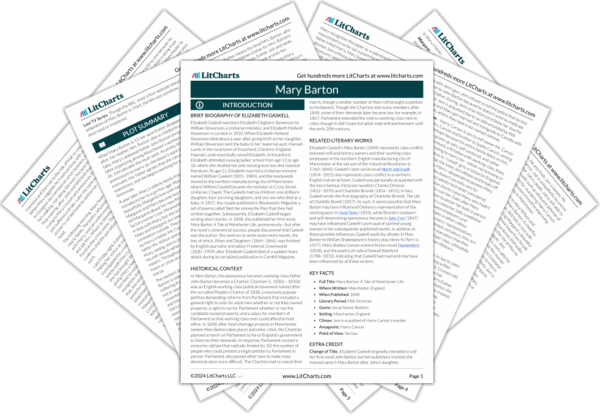Mary Shelley’s 1818 novel
Frankenstein tells the story of a scientist who arrogantly creates a self-conscious, suffering, lonely monster. Here, the novel analogizes the rich to the scientist and the poor to the monster, thereby arguing that the employer class negligently creates the conditions for workers’ suffering. John’s religious confusion over income inequality shows the ways that worldly injustice and the problem of evil can impede people’s belief in Christian tenets like universal brotherhood and the necessity of loving one’s enemies.
